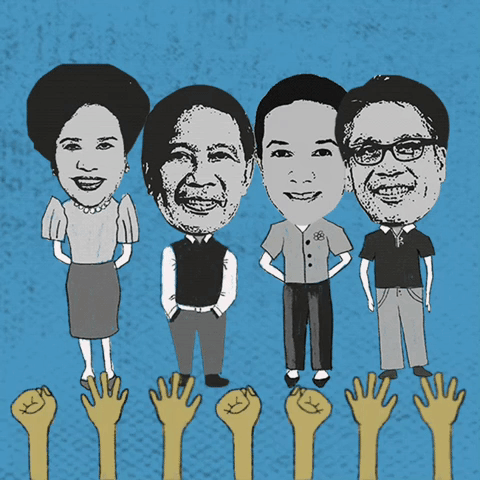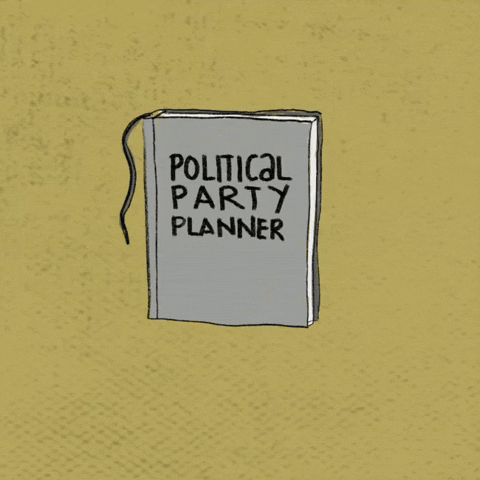EXPLAINER: Is substitution of candidates a ‘mockery' of the election process’?

Is Sen. Bato dela Rosa taking a leaf from President Rodrigo Duterte’s 2016 playbook? Is the highly touted Davao City Mayor Inday Sara set to replace dela Rosa as the PDP-Laban’s presidential candidate at the 11th hour? And more so, is it time to revisit the rules on substitution of candidates?
As many now are left guessing whether PDP-Laban will again pull off the same electoral maneuver before the Nov. 15 election deadline to shoehorn Inday Sara in the presidential race, some are already questioning the wisdom of the substitution provision.
Early this week, Deputy Speaker and Cagayan de Oro Representative Rufus Rodriguez filed a bill to put an “absolute ban” on the substitution of candidates under political parties for two reasons: 1.) to “put an end to the manipulation and mockery of the election process” and 2.) to “make more people believe in the integrity of our elections.”
The rules allowing for the substitution of candidates for political parties go way back, as the Omnibus Election Code was passed in 1985. But it wasn't until the presidential run of Duterte in 2016 did the issue rise to mainstream prominence. After PDP-Laban's presidential bet that time Martin Diño withdrew his COC after he was ruled as a nuisance candidate by the Commission on Elections, Duterte entered the fray as a substitute candidate for PDP-Laban. The withdrawal and substitution captivated the news cycle of the 2016 election campaign, contributing to the media hype that eventually helped catapult Duterte to the country's highest office.

Though Dela Rosa bristled when questioned whether his filing, which was unexpected, can be considered a mockery of the election, he indicated that he is ready to give way to another candidate.
“I am a good soldier, I will abide by party rules and decisions. Kung ano ang sabihin ng partido, we will abide by it,” he said.
What is substitution?
Section 77 of the Omnibus Election Code states that “If after the last day for the filing of certificates of candidacy, an official candidate of a registered or accredited political party dies, withdraws or is disqualified for any cause, only a person belonging to, and certified by, the same political party may file a certificate of candidacy to replace the candidate who died, withdrew or was disqualified.”
After the scheduled week for COC filing (which, in this case, was from Oct. 1 to 8), those who submitted their application within that period have until Nov. 15 to make use of the option.
A COC may also be cancelled when one is declared by the Comelec as a nuisance candidate, which is found in Section 69 of the Omnibus Election Code.
“The filing of COC is ministerial on the part of COMELEC. They just have to accept the COC and if there’s no question as to the validity of the COC, then the filler is considered a candidate,” former election commissioner Luie Tito Guia said in an interview on ABS-CBN News Channel. “If the COC is cancelled, then that would mean substitution may happen.
Is substitution a mockery of the electoral process?
“Substitution, per se, is not bad. It is a privilege enjoyed by a political party and its members,” Atty. Ona Caritos of the Legal Network for Truthful Elections said in an interview with PhilSTAR L!fe. “But given the context of this legal procedure being used as a political strategy with statements coming from PDP-Laban and Lakas political parties, its effect is on political parties and how the general public perceives its role in the electoral process.”
For Caritos, the essence of political party building is to properly prepare and plan for the elections. “But with the recent public statements from the two parties, there was not much planning and preparation,” she said, questioning the effectiveness of the “strategy” this time around, as the idea is no longer novel to attract the interest of the public.
Political analyst Dindo Manhit, who is the founder and managing director of Stratbase Group, said in a separate interview that substitution has become a form of mockery. “In this case, they’re using it as a way to analyze the political terrain by who the possible candidates are, adjust their political strategies, and factor their movements, he said. “It’s just becoming an irritant.”

Guia, however, said that it only becomes a mockery when it affects the registered voters. “Kapag nagkaroon ka ng pagpapalit ng kandidato on the day of the elections, you confuse voters. Pero kung matagal pa naman and voters have the opportunity to know who the final candidates are, then probably that is not as bad,” he explained.
“Dapat tatakbo ka palang, meron ka nang purpose ituloy yung kandidatura mo hanggang sa election. Otherwise, to me, my interpretation there is that wala kang good-faith intention,” Guia added.
An actual candidacy, Guia added, should also go beyond the formal announcement of a candidate’s desire to secure a seat in the government. “That’s documentary, but at the same time, symbolic na talagang you are announcing formally your intention to run because that’s how solemn the process is,” he said. “So, you cannot be less than having a good-faith intention. Hindi pwedeng parang kunwari lang or pinaglalauran mo. So ‘yun yung issue doon.”
Should it be banned or just amended?
Guia highlighted the importance of looking at the legal framework in elections in its entirety. “Imagine, our basic law is still a 1985 law, which came even before the 1987 constitution?” He believes it should be reviewed by lawmakers. “Right now, substitution by reason of withdrawal doesn’t make sense—that might be something that needs to be revisited. There are situations in reality na wala naman intention tumakbo.”
For his part, Manhit suggested that the substitution option be limited to actual death or incapacity. “That would be more definite,” he said.
As many reelectionist congressmen are now busy campaigning, it may look like a tall order for Rodriguez's bill to be passed, much more taken up. If at all, any possible amendments to the law may more likely be on the backburner, for now.


